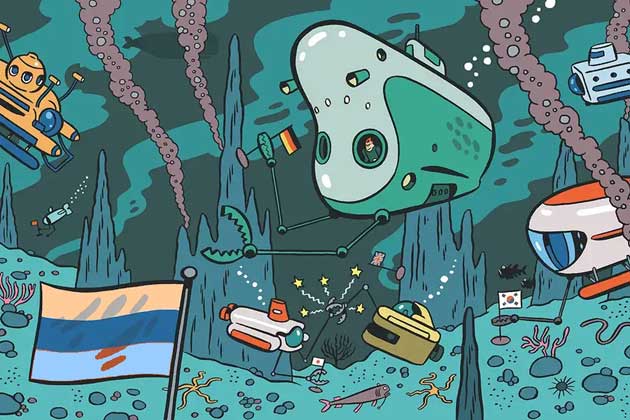Deepwater mining under Spitsbergen in Arctic moves closer
January 2024 – Norway is the first country to take concrete steps toward deep-sea mining under Spitsbergen in the Arctic. Norway's parliament overwhelmingly approved the plan to explore the ocean beneath the archipelago of Spitsbergen.

Now that parliament has agreed, permits will be granted to companies to explore the soil. They will scan parts of an area the size of Germany in search of minerals such as cobalt, manganese and nickel. Those metals, according to Norway, play a crucial role in the energy transition.
It is not yet known when the companies will begin exploration. Spitsbergen is in Norway's economic zone. The Norwegians therefore get to decide what to do with the area.
The exploration plan is also receiving criticism. Environmental organizations say there is too little knowledge about the effects of deep-sea mining. The research area sits four to five kilometers deep and is an extreme landscape with mountains, volcanoes and great biodiversity. Many species there have not yet been mapped at all.
Environmental organization Greenpeace already took action in recent years to stop deep-sea mining. "The life in the ocean is more important than the minerals it contains."
Deep-sea mining is still in its infancy. The exploratory phase agreed to by the Norwegian parliament should identify what techniques are needed.
At the same time, scientists are looking over the shoulders of research companies to chart the impact on the environment. If the negative effects are greater than expected, environmental regulations will have to be tightened and the entire deep-sea mining project will have to go back to the Norwegian parliament.
